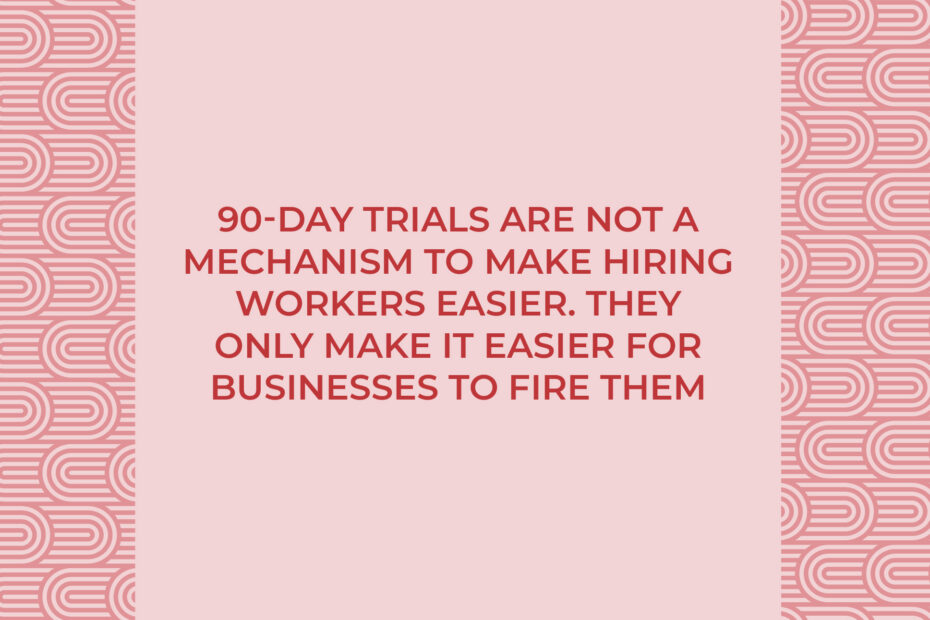Unions across the country have slammed the National Party’s proposal to reintroduce 90-day trials, and say it would undermine fundamental workplace rights in New Zealand.
NZ Council of Trade Unions President Richard Wagstaff said 90-day trials were outdated, ineffective, and lazy policy.
“Getting ‘back on track’ as National puts it, clearly means a return to policies that are bad for working people.
“90-day trials are not a mechanism to make hiring workers easier. They only make it easier for businesses to fire them.”
Trial periods have proven to be ineffective. Treasury funded research found no evidence that the ability to use trial periods significantly increased firms’ overall hiring.
Additionally, there was no evidence that the policy substantially increased short-term hiring.
The study did find that many employees faced increased uncertainty about their job security in the months after their hiring.
Unite National Secretary John Crocker said the policy would disproportionately impact workers that were young and on low incomes.
“This policy would disadvantage vulnerable workers, like young people or those just entering the workforce, while allowing bad employers to fire people with impunity.
“Workers can already be fired – but it has to be done fairly and reasonably. National’s proposal is to protect unfair and unreasonable employers from any consequences.”
E tū Director Sarah Thompson dismissed the policy as anti-evidence and anti-worker.
“During a cost-of-living crisis, workers and our families need better pay, conditions, and job security – things National seems dead set on eroding through talk of 90-day trials, and the repeal of Fair Pay Agreements.”
“This is a failed policy from the past that exists solely to seduce the National Party’s business donors,” said Dennis Maga, FIRST Union General Secretary. “This would make life worse in New Zealand for anyone who doesn’t already run a very large and exploitative business.”
